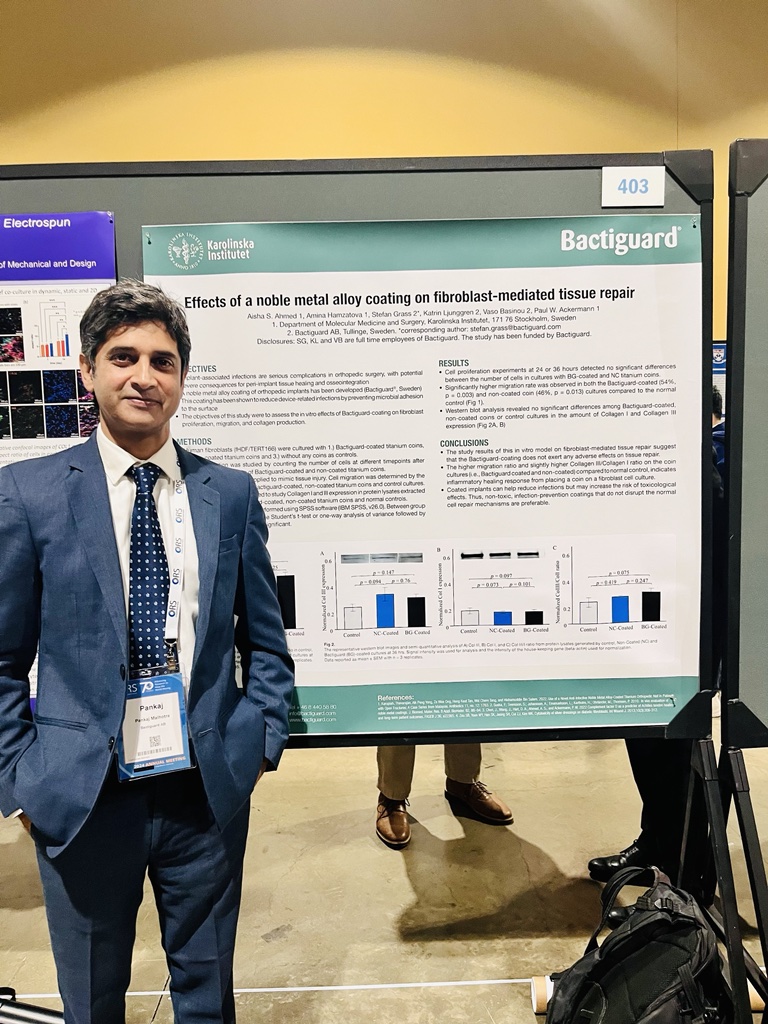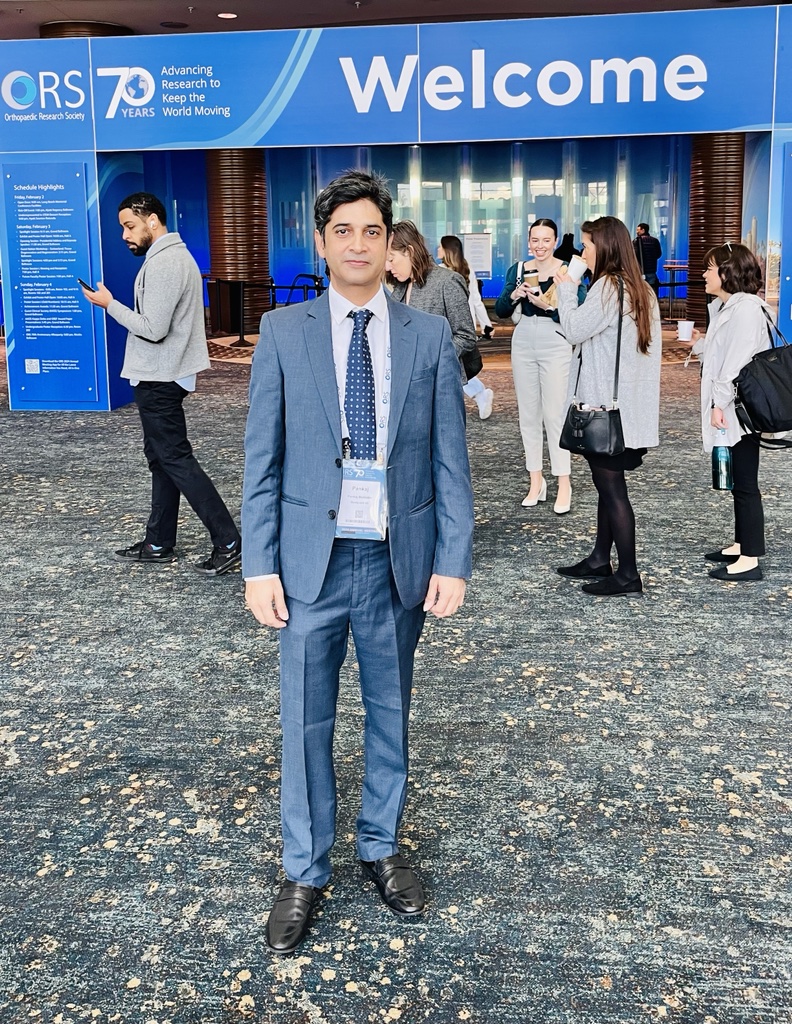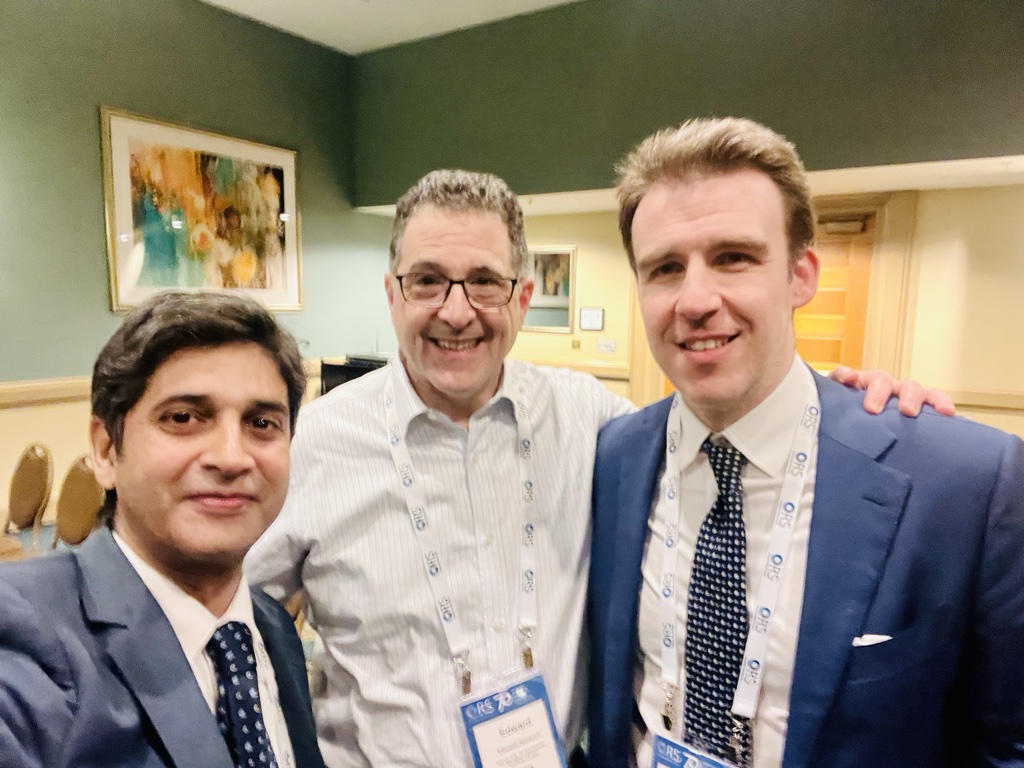A recent study, presented at the Orthopaedic Research Society (ORS) Annual Meeting in Long Beach, showed that a titanium surface with Bactiguard’s infection prevention technology was just as tissue-friendly as normal titanium. This contrasts with other available surface coatings that negatively affect the surrounding tissue.
Researchers from Karolinska Institutet (Department of Molecular Medicine and Surgery) and Bactiguard have performed a study to assess the in vitro effects of Bactiguard-coating on fibroblast proliferation, migration, and collagen production. In short, the study concludes that Bactiguard-coated implants are non-toxic solutions for infection prevention that do not interfere with tissue repair mechanisms and, thus, non-toxic, infection prevention coatings, like Bactiguard’s, that do not disrupt the normal cell repair mechanisms are preferable.
This study by Ahmed et al. investigates the in vitro effects of Bactiguard-coated titanium on fibroblast-mediated tissue repair, which is important for healing around orthopedic implants. The Bactiguard coating, a noble metal alloy, reduces infection risks without affecting tissue integration. The research focused on fibroblast proliferation, migration, and collagen production, crucial aspects of tissue repair. Experiments showed no significant difference in cell proliferation between Bactiguard-coated and non-coated titanium surfaces. Migration rates were higher for both coated and non-coated titanium compared to controls, indicating an inflammatory healing response, but no significant differences were found in collagen type I and III expression among the groups.
These results suggest that the Bactiguard coating does not negatively impact tissue repair processes and is just as tissue-friendly as normal titanium. This contrasts with other available surface coatings that negatively affect the surrounding tissue and are known to reduce fibroblast functions. The findings support the use of Bactiguard-coated implants as a non-toxic solution for infection prevention that does not interfere with tissue repair mechanisms.
Dr. Pankaj Malhotra, Chief Medical Officer at Bactiguard, says: The ORS 2024 conference launched to an impressive start with significant participation, aligning perfectly with the forward-thinking theme of “Advancing research to keep the world moving.” This theme speaks directly to Bactiguard’s mission of delivering innovative solutions for infection prevention and disrupting biofilm formation. At the conference, Bactiguard was proud to present the poster titled “Effects of a Noble Metal Alloy Coating on Fibroblast-Mediated Tissue Repair” showcasing that, beyond its anti-infective properties, the Bactiguard Noble Metal Alloy coating supports critical aspects of tissue repair, such as fibroblast proliferation, migration, and collagen production, comparably to uncoated titanium metal. This emphasizes our coating’s optimal balance of safety and effectiveness. Engagement with the Research Initiative Group (RIG) was particularly stimulating. This committee is dedicated to pushing the boundaries of research in musculoskeletal infections and related areas. Their commitment to prioritize the discussion of Antimicrobial Resistance (AMR) and BIOFILM for ORS 2025 underscores the urgent need for collaboration between industry experts and the academic community on these crucial topics.”
I eagerly look forward to participating in the Orthopaedic Infection Conference in Davos, Switzerland, from June 24th to 26th, 2024. It promises to be a key event focusing on orthopedic infections and Fracture-Related Infections (FRI), furthering our commitment to advancing healthcare and patient outcomes.
For further information, please contact:
Nina Nornholm, Communication & IR Director +46 708 550 356



From left: Dr. Pankaj Malhotra, Chief Medical Officer at Bactiguard. Edward Schwarz PhD, Director, Center of Musculoskeletal Research, University of Rochester & Editor-in-Chief, Journal of Orthopaedic Research. Dr Alberto Carli, Plastic Surgeon
